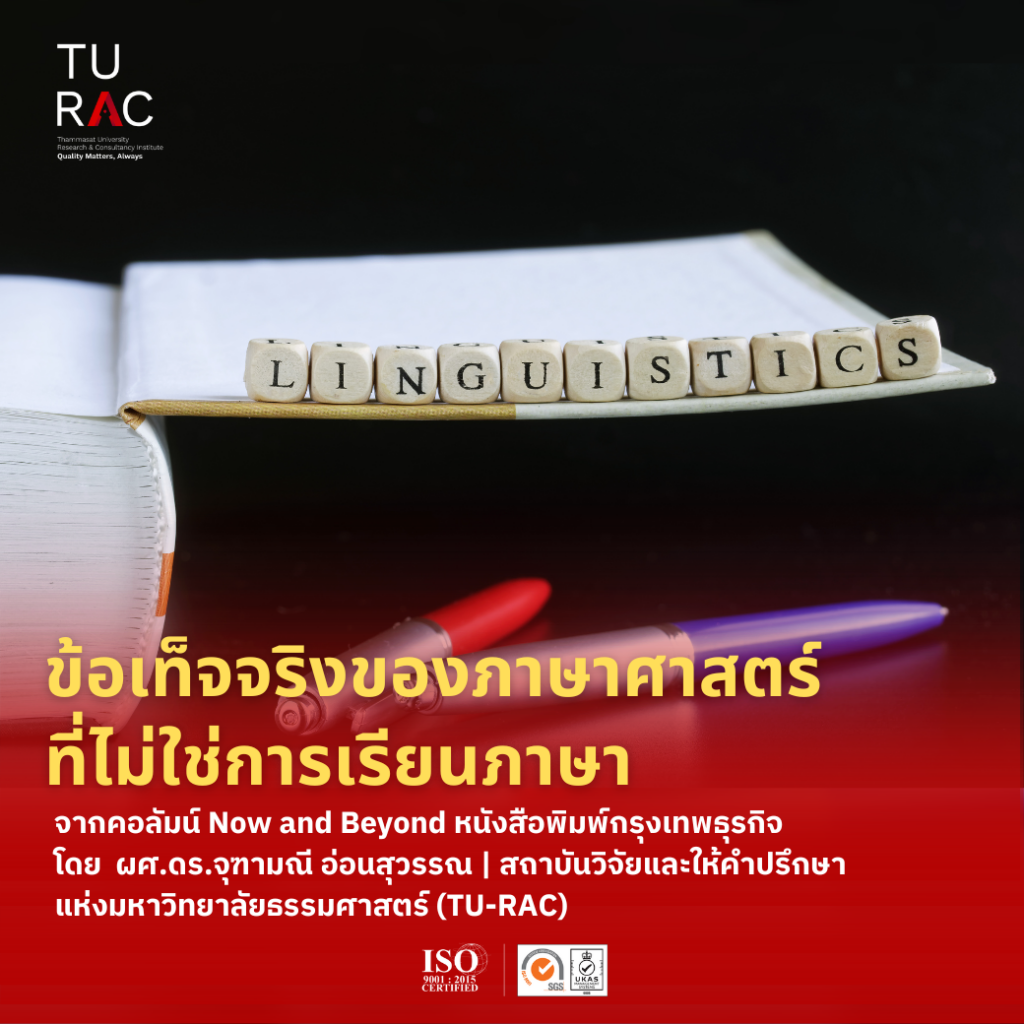TU-RAC ชวนอ่านบทความ เรื่อง ข้อเท็จจริงของภาษาศาสตร์ ที่ไม่ใช่การเรียนภาษา | โดย ผศ.ดร.จุฑามณี อ่อนสุวรรณ สถาบันวิจัยและให้คำปรึกษาแห่งมหาวิทยาลัยธรรมศาสตร์ (TU-RAC) ในคอลัมน์ Now and Beyond by TU-RAC ทุกวันพฤหัสบดี ในหนังสือพิมพ์กรุงเทพธุรกิจ
การเรียนภาษา เช่น อังกฤษหรือจีน คือการฝึกทักษะฟัง-พูด-อ่าน-เขียน เพื่อใช้สื่อสารได้จริง ขณะที่ ภาษาศาสตร์ คือการศึกษาโครงสร้าง ระบบเสียง ความหมาย และการเปลี่ยนแปลงของภาษาในเชิงลึก เพื่อเข้าใจกลไกและพัฒนาการของภาษา ภาษาศาสตร์ยังเชื่อมโยงกับศาสตร์อื่น เช่น จิตวิทยาและเทคโนโลยี และมีบทบาทสำคัญในยุคโลกาภิวัตน์ ทั้งการอนุรักษ์ภาษาถิ่น การพัฒนา AI และการแก้ปัญหาด้านการสื่อสาร
TU-RAC invites you to read the article “The Facts About Linguistics That Are Not Language Learning” | Written by Asst.Prof.Dr.Chutamanee Onsuwan from the Thammasat University Research and Consultancy Institute (TU-RAC). This article is featured in the Now and Beyond by TU-RAC column, published every Thursday in the Bangkok Biz News newspaper.
Learning a language, like English or Chinese, focuses on developing communication skills—listening, speaking, reading, and writing. In contrast, linguistics dives deeper into the structure, sound systems, meanings, and evolution of languages to understand how they work and change over time.
Linguistics also connects with fields like psychology and technology, playing a vital role in preserving endangered languages, advancing AI, and solving communication challenges in our globalized world.
For more details: https://www.bangkokbiznews.com/health/education/1153454



